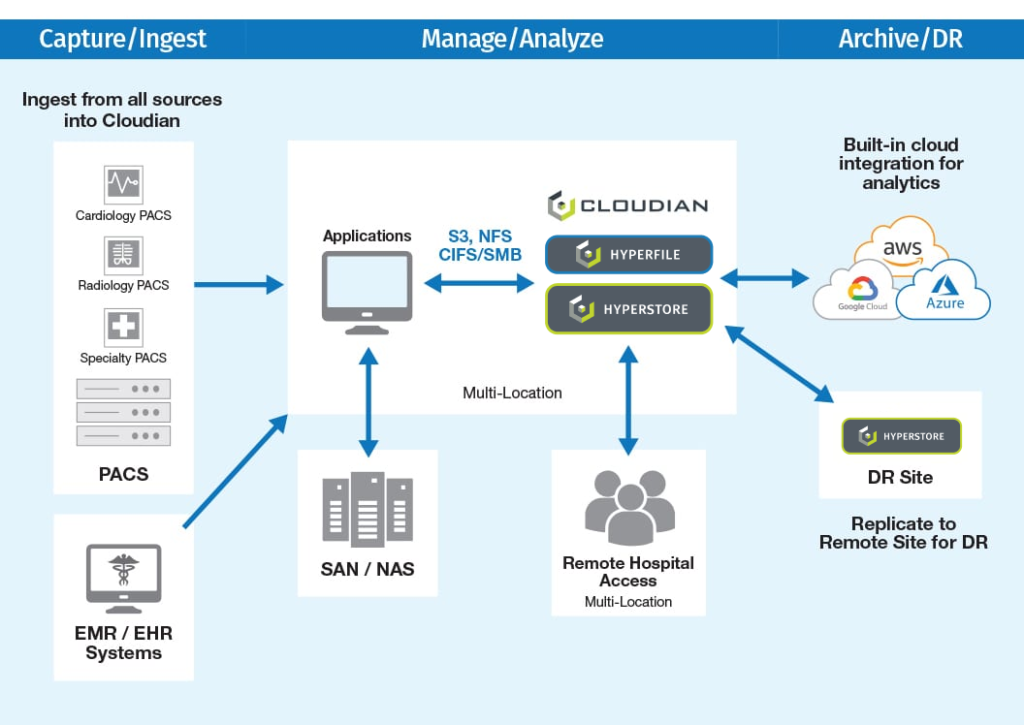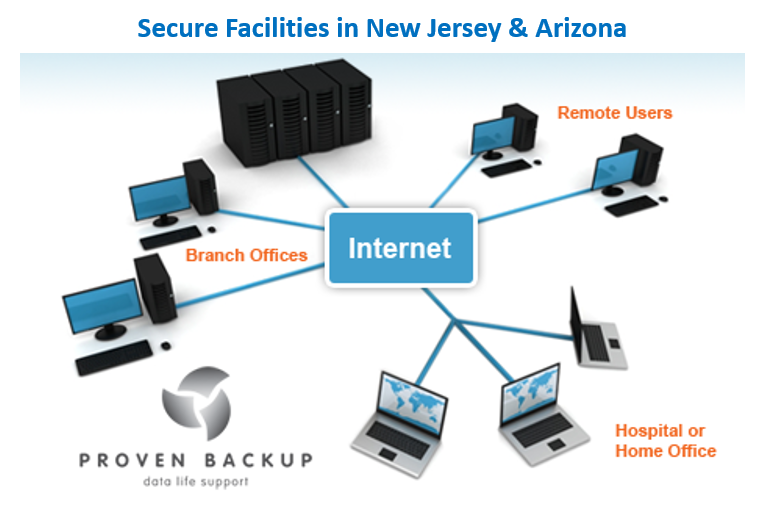In today’s digital age, data management and storage are essential components of any organization’s operations. Healthcare facilities, in particular, face unique challenges when it comes to managing vast amounts of sensitive patient data. With increasing pressures to improve patient outcomes, reduce costs, and comply with legal and regulatory requirements, healthcare facilities are turning to innovative solutions to streamline their operations. One such solution is the use of cloud storage for data backup.
Cloud storage refers to the practice of storing data on remote servers that can be accessed via the internet. It offers several advantages over traditional data storage methods, including lower costs, greater scalability, and improved security. In the healthcare industry, cloud storage can be used to store electronic health records, medical images, and other patient-related data. This approach enables healthcare facilities to access critical information from anywhere, at any time, and from any device, while also ensuring that the data is secure and compliant with regulatory requirements. In this article, we will explore the benefits of using cloud storage for data backup in healthcare facilities and the key considerations that healthcare providers must keep in mind when adopting this technology.
A healthcare facility using cloud storage for data backup is a secure, cost-effective and reliable way to ensure that all data is backed up in the event of a disaster. Cloud storage provides access to data from anywhere, anytime, with no need to maintain physical hardware or a dedicated IT infrastructure. It also offers data encryption, security, and compliance with regulatory requirements. Cloud storage also allows for scalability and allows data to be accessed quickly and easily. Healthcare organizations can manage their data with ease and flexibility, ensuring that all data is secure and up-to-date.

What is Cloud Storage?
Cloud storage is a form of online data storage that stores information on remote servers. It is a service that enables users to store and access data over the internet, providing secure access to the data at any time, from any device. Cloud storage is the most efficient and cost-effective way to store and manage large amounts of data.
The Benefits of Cloud Storage for Healthcare Facilities
Healthcare facilities are increasingly turning to cloud storage solutions to store and manage their data. Cloud storage provides healthcare facilities with increased security, scalability, data backup and recovery, and cost savings.
Security
The security of healthcare data is a top priority for healthcare facilities. Cloud storage solutions provide the highest level of security for healthcare data, protecting it from unauthorized access and providing secure access to the data from any device. Cloud storage also provides unlimited storage capacity, allowing healthcare facilities to store more data without worrying about running out of storage space.
Scalability
When using cloud storage, healthcare facilities can easily scale up or down their data storage needs without worrying about expensive hardware investments. Cloud storage solutions can easily scale up or down to meet the needs of the healthcare facility, allowing them to add or remove users or data quickly and easily.
Data Backup and Recovery
Cloud storage provides healthcare facilities with an efficient and cost-effective way to back up and recover their data. Cloud storage solutions are designed to ensure that data is backed up and stored safely and securely, and can be easily recovered in the event of a disaster.
Cost Savings
Cloud storage solutions provide healthcare facilities with significant cost savings compared to traditional data storage solutions. Cloud storage solutions are typically much less expensive than traditional data storage solutions, and they can be accessed at any time, from any device. This means that healthcare facilities can save money on data storage costs while still providing secure access to their data.
Frequently Asked Questions
Cloud storage is a key component of any healthcare organization’s data backup strategy. This technology provides secure, reliable, and cost-effective storage solutions to ensure that patient information is safe and accessible. Here are some questions and answers about using cloud storage for healthcare data backup.
What is cloud storage?
Cloud storage is a type of data storage which is hosted on the internet. It allows businesses to store data on remote servers, which can be accessed from any device with an internet connection. This type of storage is highly secure, cost-effective, and reliable. It also eliminates the need for physical storage devices, such as hard drives, which can quickly become outdated and unreliable.
What are the benefits of using cloud storage for healthcare data backup?
Using cloud storage for healthcare data backup offers a number of benefits. It is secure, as data is stored in encrypted form. This ensures that sensitive patient information is safe and secure. Additionally, using cloud storage is cost-effective, as businesses don’t have to purchase and maintain physical storage devices. It is also highly reliable, as data is backed up in multiple data centers, ensuring that it is always available when needed.
What are the risks of using cloud storage for healthcare data backup?
As with any type of data storage, there are some risks associated with using cloud storage for healthcare data backup. The most common risks include data breaches, data loss due to hardware failure, and unauthorized access. In order to mitigate these risks, it is important to ensure that the cloud storage provider implements adequate security measures, as well as regularly backs up data to ensure that it is safe and accessible.
What should be considered when selecting a cloud storage provider for healthcare data backup?
When selecting a cloud storage provider for healthcare data backup, it is important to consider the provider’s security measures, reliability, cost, and customer service. It is also important to make sure that the provider is compliant with relevant regulations, such as HIPAA. Additionally, it is important to make sure that the provider offers adequate support and guidance, to ensure that the data is secure and accessible.
What are some best practices for using cloud storage for healthcare data backup?
When using cloud storage for healthcare data backup, it is important to follow best practices to ensure that data is secure and accessible. This includes regularly backing up data to multiple data centers, implementing appropriate security measures on all devices, and regularly testing the data backup system. Additionally, it is important to ensure that all users are trained on the system, and only authorized personnel are given access to sensitive data.

In conclusion, the use of cloud storage for data backup in healthcare facilities is a game-changer. It offers a secure and efficient way to store and retrieve sensitive patient information, making it an essential tool for healthcare professionals. The benefits of cloud storage, such as cost-effectiveness, accessibility, and scalability, cannot be ignored. Furthermore, it ensures that healthcare providers can operate with confidence, knowing that their patients’ data is protected and available at any time.
In today’s digital age, data security is a significant concern, especially in the healthcare industry. Cloud storage offers an excellent solution to this problem. However, it is crucial to ensure that the cloud storage provider follows the necessary regulations and standards to safeguard patient data. With the right cloud storage solution, healthcare facilities can streamline their operations, reduce costs, and provide better patient care. Overall, the use of cloud storage in healthcare facilities is a step in the right direction towards a more efficient and secure healthcare system.


